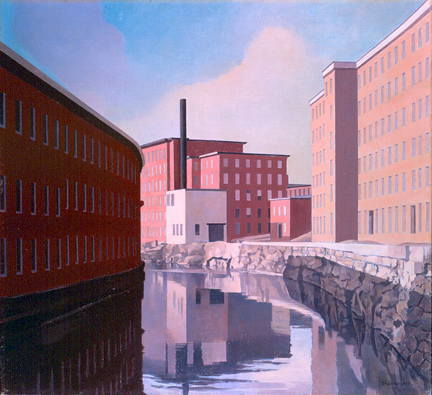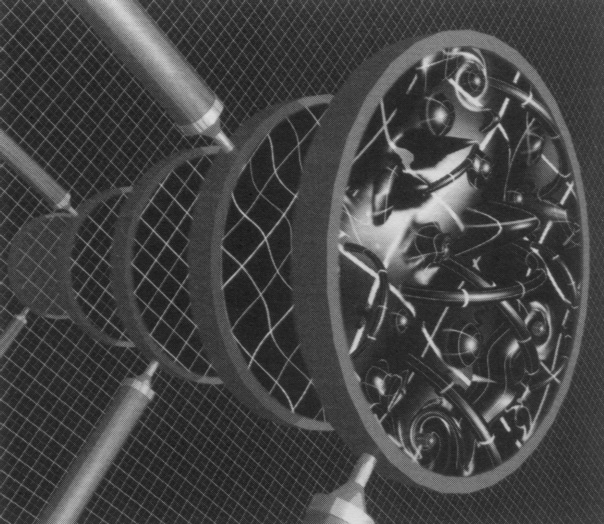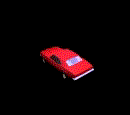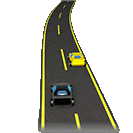 Charles Percy Snow and three Challenges of our Times. An interpretation of the core of his Two Cultures.
Charles Percy Snow and three Challenges of our Times. An interpretation of the core of his Two Cultures.  Charles Percy Snow and three Challenges of our Times. An interpretation of the core of his Two Cultures.
Charles Percy Snow and three Challenges of our Times. An interpretation of the core of his Two Cultures.
core argument is | critics agree | critics disagree | his evidence | feedback problem
One need not hesitate to clearly state the heart of Snow's call to our "better angels," to stir, and –conjuring the daemons of our moral imaginations–summoning us all to actually do something to meet the threats that automated technology challenges us to comprehend.
By that I mean the moral challenge was Snow's key focus. Actually several ethical challenges combine to create this moral challenge posed by techniques required by mechanization, industrialization, and automation in our lifetimes. The ethical challenges are: the moral trap, the moral unacceptability of ignorance, and the moral call to assert technical understanding -- and more complex-- arguments are at the heart of the discussion in The Two Cultures.
The moral challenge –according to Snow–is the combination of:
I have to say I do not think better education is the crux of Snow's argument. As much as he asserts that we must learn that technological capabilities possess the power to thoroughly alter people's conditions of life, the world, our perception, and the accumulation of wealth there are often reasons that Snow argues that our automated tool complex does challenge our complacency.

The old industrial order. Charles Sheeler, American painter, Amoskeag Canal 1948.
A. -- so focus your paper on these problems raised by automation:
technological capabilities possess the power to thoroughly alter
B. The Heart of Snow's criticism is profound.
He insists that we are witnessing an amorality of practice based on our undue faith in process:
The real issue is about comprehending the technological changes that Snow speaks of in sections (II) and (III).
Many critics may focus on the first part of Snow's argument. But they do so at the cost of seeing his real core-- in the two middle parts of his lecture.
The sections on the industrial revolution's impacts on the intelligentsia are more significant than his establishment of his argument in section 1.
Initially the industrial and scientific revolutions (III) and secondarily, the roles of German technologists and Henry Ford (II) as examples of "blocked technical systems" are his main argument's strength.
Here in his discussion of why people misunderstand technological change is where Pacey, Pursell, and Postman come in for six or more related reasons.
Although Snow does not use those terms –"blocked technical systems"–as the phrase is Pacey's language, he clearly worries that with regards to rapid population growth, fission, and atomic warfare, that we are not equipped to handle the burden posed by sub-atomic discoveries and deployment of nuclear weapons in a world half poor and half wealthy.
We may not be smart enough to manage our technological capacity to change society and the world.
For example Pursell writes:
"Warfare is one of the oldest of human crafts. Death that great harvester of lives, is depicted holding his weapon, a scythe, which is also a tool." the art of war is a vastly older term than "military science," First the mechanization and then the automation of killing in our own time, however, have destabilized those ancient practices and rituals we call war, a transformation that has placed us all in great peril."
First the mechanization and then the automation of killing in our own time, however, have destabilized those ancient practices and rituals we call war, a transformation that has placed us all in great peril."

The intended ground zero for the atomic bomb dropped on Hiroshima, August 6, 1945.
Thus all the authors have their eyes on Snow's compelling (though flawed critique of society with respect to technology) argument that "tightly coupled," technically sophisticated systems demand more–not less from us.
But no critic is more precise than Postman (starts his introduction p. xi-xii) who invokes the ghost of C. P. Snow at the very start of his treatise concerning the capacity of technology to shatter cultural traditions as even Pursell documents.
Postman, by insisting "Sir Charles had posed the wrong question, given the wrong argument, and therefore offered an irrelevant answer."
But he qualifies his attack by saying,
"to Snow must go some considerable credit for noticing that there are two cultures, that they are in fierce opposition to each other, and that it is necessary for a great debate to ensue about the matter."
Technopoly, pp. xi-xii.
Conclusion -- you must decide:
Snow's words | Snow's essay interpreted | The Two Culture's context | The Redux Essay | Siry essay
Joan Didion fears we are lost and warns us that we must be more alert to our automated surroundings.
We as a society of inventors are capable of appropriately altering a fine technology into a more exaptive technical array of tools only if people are smart enough, given access to materials, and encouraged to exercise judgment.
In this new automatically arrayed world of gadgetry where automated technology is faster than we can perceive, more powerful than we can protect ourselves from its unintended consequences, and more pervasive than we can identify in its ability to shift our attention, vigilance alone is an insufficient behavior to protect us from the threats with which we coexist.
What threats face your generation and how will these problems be reconciled with ethical action given past experiences with mechanization, industrialization, or automation?

The world is in the midst of a "quantum leap" in so far as changes in technical ability is concerned and we have little or no time to argue over what we must do. But for some authors,
a) quantum leap is a poor metaphor
b) quantum leap is an apt metaphor
Michio Kaku and his visions of an altered future life, love and work.
The concept of feedback is a fundamental part of technology–organizationally speaking. rule graphic examples A. tools alter the conditions
Bulldozers But the combined effects of tools and and labor's use of technology is greater than the sum of each contributing factor. The snowball effect. B. techniques ought to control the tool complexes' effects Rates at which mills cut logs 

Relations are key to comprehend any technical problem.
Snow's words | Snow's essay interpreted | The Two Culture's context | The Redux Essay | Siry essay
Pursell | Pacey–World| Pacey–Meaning | Postman | Tenner | Eberhart | Snow | Kaku